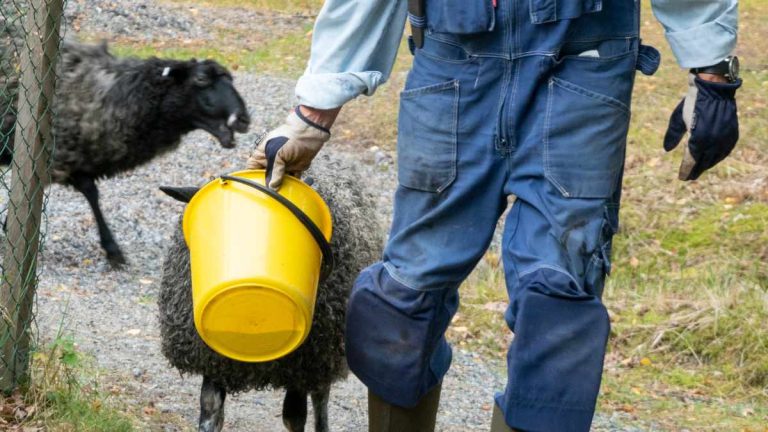The UK government is considering compensating farmers who could be forced to carry out mass sheep slaughter under a no-deal Brexit scenario. With British farmers heavily reliant on European markets for their exports, there are growing concerns that a sudden break in trade with the EU could leave them with no market for their sheep meat.
Brexit minister Stephen Barclay has acknowledged the potential challenges facing the farming sector if the UK leaves the EU without a deal. He stated that while the government prefers to avoid such a scenario, officials are examining measures to support farmers who may face devastating consequences if trade is disrupted. One option being explored is a compensation scheme for farmers forced to slaughter large numbers of their livestock.
Labour’s shadow Brexit minister, Jenny Chapman, warned that the government’s no-deal contingency plan could involve the slaughter and burial of up to nine million sheep. She raised these concerns in Parliament, highlighting the severe impact that a no-deal Brexit could have on the UK’s sheep farming industry.
Barclay did not rule out the possibility of mass sheep slaughter during a Brexit committee hearing but noted that plans were in place to mitigate the worst effects. He referred to Environment Minister Michael Gove’s proposal for “specific intervention measures” to support sheep farmers. This includes a potential compensation scheme to help livestock farmers cope with the financial fallout of a no-deal Brexit.
The National Farmers’ Union (NFU) has voiced its concerns about the impact of leaving the EU without a deal. In a statement earlier this month, the NFU warned that UK farmers could face new restrictions and checks on exports to Europe, which could drastically reduce their ability to sell their products. With 97% of British sheep meat exports heading to EU markets, farmers fear they could be left without a viable market, potentially leading to mass business closures and large-scale slaughter of sheep.
The NFU has urged the government to ensure that Brexit is managed in an “orderly manner” to avoid chaos in the farming sector. Minette Batters, the NFU president, stressed that any departure from the EU must include an agreement that protects British farmers.
While some farmers had voted for Brexit, many in the sheep sector have expressed concerns about what a no-deal Brexit could mean for their livelihoods. Barclay acknowledged these concerns, describing the sheep meat sector as an “outlier” due to its heavy reliance on European markets. Despite this, he reiterated the government’s position that leaving the EU without a deal would be preferable to not leaving at all, and reassured farmers that plans were in place to help them navigate the potential disruptions.
The uncertainty surrounding Brexit continues to weigh heavily on the farming community, with many hoping for a resolution that avoids the worst-case scenarios.

